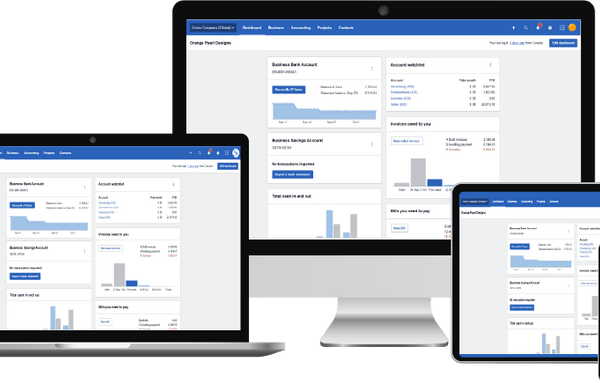Payroll checklists are handy to have as reference each time payroll is run to ensure proper proceedures have been taken into consideration. Feel free to bookmark this checklist for reference. Payroll stands as a critical function that necessitates meticulous attention to detail and adherence to legal requirements. For Canadian businesses, navigating the landscape of payroll processing involves a series of considerations ranging from new hire information to holiday observances and remittance deadlines. Let’s delve into a concise yet comprehensive checklist to ensure smooth payroll execution while upholding Canadian payroll legislation compliance.
New Hire Information
Before initiating payroll procedures, it’s imperative to gather pertinent details of new hires. This includes personal information, emergency contacts, employment status, tax forms (such as TD1 and Provincial TD1 such as BCTD1 for the province of BC, respectively), banking information for direct deposit, and any relevant employment agreements.
Termination of Employees
In instances of employee termination, proper documentation and adherence to termination pay regulations outlined in provincial employment standards are crucial. This involves calculating and disbursing final pay, including any accrued vacation pay or outstanding benefits, within the stipulated timeframe.
Holidays and Bank Closures
Familiarizing oneself with statutory holidays and corresponding bank closures is indispensable for accurate payroll scheduling. Noteworthy holidays such as New Year’s Day, Canada Day, and Christmas Day, among others, impact payroll processing timelines and necessitate adjustments to accommodate bank closures. Visit BC Employment Standards for the list of BC statutory holidays. Wagepoint has a handy 2024 payroll calendar that lists bank closures and remittance dates.
Payroll Remittance Deadlines
Timely remittance of payroll deductions to the Canada Revenue Agency (CRA) is non-negotiable. Various thresholds and payment schedules exist based on the frequency of payroll disbursements. From threshold 1 and 2 remitter payments to quarterly and regular remitter payments, each category entails distinct deadlines that must be met to avoid penalties. To learn more about payroll remittances visit Canada.ca. To find out what type of remitter your business is visit your CRA My Account.
Review Employee Benefits
Ensuring proper administration of employee benefits is paramount for both compliance and employee satisfaction. Reviewing benefit plans, including health insurance, retirement contributions, and other perks, helps verify accurate deductions and contributions. Employers must also stay informed about changes in benefit offerings and ensure timely enrollment or adjustments for eligible employees.
Collect Employee Time and Attendance
Accurate tracking of employee time and attendance lays the foundation for precise payroll calculations. Employers should implement robust timekeeping systems to record hours worked, including regular hours, overtime, and any applicable shift differentials. Time and attendance data should be diligently reviewed and cross-referenced with employee schedules to mitigate discrepancies and ensure fair compensation.
7. Resources for Payroll Legislation
Staying up to date with evolving payroll legislation is essential for compliance and risk management. Accessing reliable resources can provide invaluable guidance and updates on regulatory changes. The following resources offer comprehensive insights into Canadian payroll legislation:
- Switzer & Company Resources: Switzer & Company offers a wealth of resources covering various aspects of payroll legislation, including articles, guides, and compliance tools tailored to Canadian businesses.
- Canada Revenue Agency (CRA): The CRA’s website serves as a primary resource for payroll-related information, offering guidance on tax deductions, remittance deadlines, and legislative updates.
- Provincial Employment Standards: Each Canadian province has its own set of employment standards that govern payroll practices. Employers should refer to provincial labor departments or websites for detailed information specific to their jurisdiction. BC Employment Standards
- National Payroll Institute (NPI): The NPI is a valuable resource for payroll professionals, offering training programs, certification courses, and a wealth of educational resources on payroll legislation and best practices.
- Legal Counsel or HR Consultants: Seeking guidance from legal counsel specializing in employment law or engaging HR consultants familiar with Canadian payroll regulations can provide tailored advice and ensure compliance with intricate legal requirements.
Canadian Payroll Legislation Compliance
Compliance with payroll legislation in Canada ensures employers are providing their employees with mandated benefits and entitlements, encompassing minimum wage, vacation pay, overtime pay, public holiday pay, and termination pay. Adhering to these regulations not only fosters a harmonious employer-employee relationship but also safeguards against potential legal repercussions.
Navigating the intricacies of Canadian payroll entails meticulous planning, adherence to legislative requirements, and a proactive approach to scheduling. By meticulously following this checklist and leveraging the provided payroll calendar, businesses can streamline their payroll operations while ensuring compliance with Canadian payroll legislation.
Stay tuned for more insights and updates on payroll best practices!
At Switzer & Co., we understand the challenges individuals and companies face. Our team of experts can help you develop a strategies and workflows that aligns with your business goals and maximizes your profits. We offer a wide range of services, including:
- Accounting and Tax
- Information Technology
- Management Consulting
With our help, you can gain peace of mind knowing that your business is prepared to weather any economic storm.
Your financial health is a critical component of your business. By implementing the above strategies and seeking professional advice, Canadian businesses can navigate these challenging times with confidence and emerge stronger on the other side. Contact our team today to learn more about our services and how we can help your business.
Disclaimer: The information provided in this blog serves as a general guideline. Employers are advised to consult with qualified professionals or legal counsel to ensure compliance with specific provincial regulations and individual circumstances.



